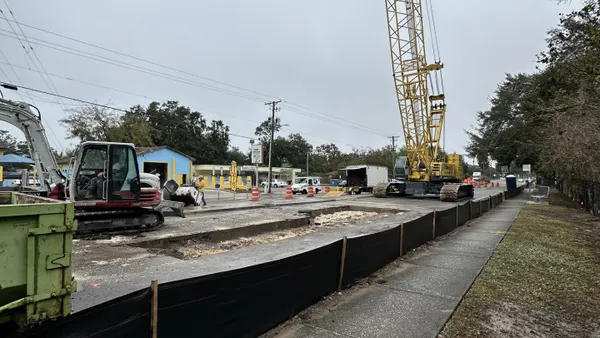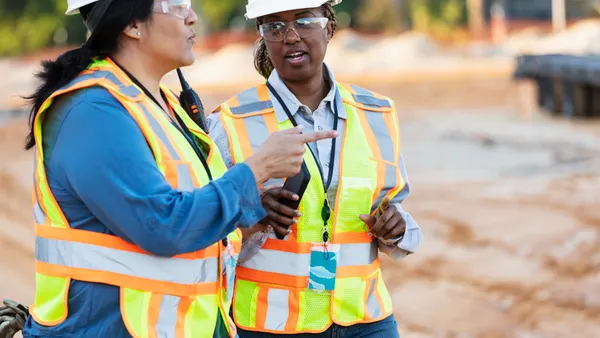Dive Brief:
- A Trump administration policy adviser announced that the White House would try to streamline the federal funding application process to speed up implementation and execution of the president's $1 trillion infrastructure initiative, according to The Hill.
- D.J. Gribbin told a group gathered at the Hudson Institute that the president wants to make it easier for local government agencies and public-private partnerships (P3s) to secure federal dollars, and also make the requirements clear up front so that applicants will know if their projects are likely to qualify for grants.
- The Trump team is working on a 70-page document that outlines the president's infrastructure plans. The proposal will form the basis for the massive infrastructure program, and is expected to be presented to Congress in January.
Dive Insight:
Gribbin's comments seemed to reintroduce P3s as a significant part of the president's plan to supplement $200 billion of direct federal spending with $800 billion of additional investment. During last year's campaign, then-candidate Trump's proposals focused almost entirely on leveraging private-sector money and know-how to beef up the quality of the nation's infrastructure. But as president, he appeared to do a 180-degree turn in September when he told a group of House Democrats that P3s were "more trouble than they are worth," and that they would not play a significant part in the infrastructure initiative.
Some of the president's aides have also suggested that those states that can come up with ways to finance infrastructure will be able to compete for additional federal money. The Trump administration, meanwhile, is reportedly considering pushing for a seven-cent increase in the federal gas tax as a way to pump more money into the Highway Trust Fund (HTF), one of the primary mechanisms for state transportation projects. The Congressional Budget Office has warned that the HTF will be empty within the next decade without new revenue streams.
Addressing the nation's crumbling infrastructure was a big political talking point even before the election, but if a recent RAND Corporation study is correct, the state of the country's highways, bridges and other public assets might not be so bad. Researchers said there is a maintenance backlog and quality issues in some areas, but the problems are not as widespread as some reports would have Americans believe.









